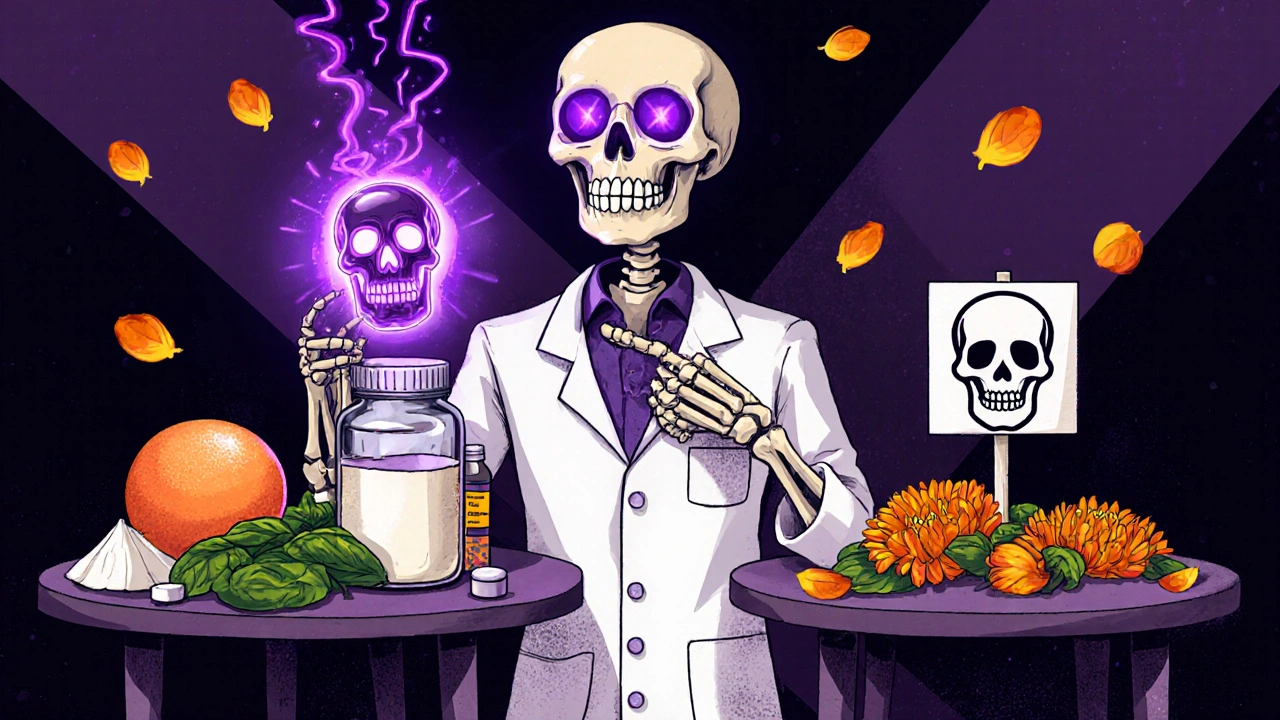Grapefruit and Meds: What You Need to Know About Dangerous Interactions
When you take grapefruit and meds, a common fruit that can dangerously alter how your body processes certain drugs. Also known as grapefruit juice interaction, it’s not just a myth—it’s a real risk that sends people to the ER every year. Even a single glass of juice can block enzymes in your gut that normally break down medications, causing too much drug to flood your bloodstream. This isn’t about allergies or sugar—it’s about your liver and digestive system being tricked into letting more medicine in than it should.
The enzyme CYP3A4, a key protein in the liver and intestines that breaks down over half of all prescription drugs is the main target. Grapefruit shuts it down like flipping a switch. That means drugs like statins, blood pressure pills, anti-anxiety meds, and even some fertility treatments can build up to toxic levels. You might not feel it right away, but the damage can be silent—kidney stress, muscle breakdown, irregular heartbeat, or sudden dizziness. And it doesn’t matter if you drink it in the morning and take your pill at night. The effect lasts over 24 hours.
Not all drugs are affected, but the ones that are? They’re common. Think simvastatin for cholesterol, amlodipine for blood pressure, or alprazolam for anxiety. If your doctor prescribed it, and you like grapefruit, ask: is this one of them? Pharmacogenetic testing and medication reviews—like those covered in posts here—can help spot these risks before they become problems. Some people think switching to orange juice is safe, but not all citrus is equal. Seville oranges and pomelos? Just as dangerous. Regular sweet oranges? Usually fine.
This isn’t just about avoiding fruit. It’s about understanding how your body handles medicine. Many of the posts on this site dive into how drugs behave in the body—how pharmacogenetic testing, a method that uses your DNA to predict how you’ll react to drugs can reveal if you’re extra sensitive to interactions. Or how medication-induced delirium, a sudden confusion in older adults often caused by common drugs can be triggered by these same enzyme disruptions. You don’t need to be a scientist to protect yourself. Just know: if your pill bottle doesn’t warn you about grapefruit, ask. If your pharmacist doesn’t mention it, push for details. Your safety isn’t optional—it’s built into every dose you take.
Below, you’ll find real-world guides on medication safety, drug comparisons, and how to avoid hidden risks. Whether you’re managing fertility meds, heart conditions, or chronic pain, knowing how grapefruit and meds interact could be the difference between feeling better and ending up in the hospital.

How Food Affects Medication Side Effects: What Patients Need to Know
Food can make your meds work better-or cause dangerous side effects. Learn how dairy, grapefruit, vitamin K, and timing affect your prescriptions and what to do to stay safe.